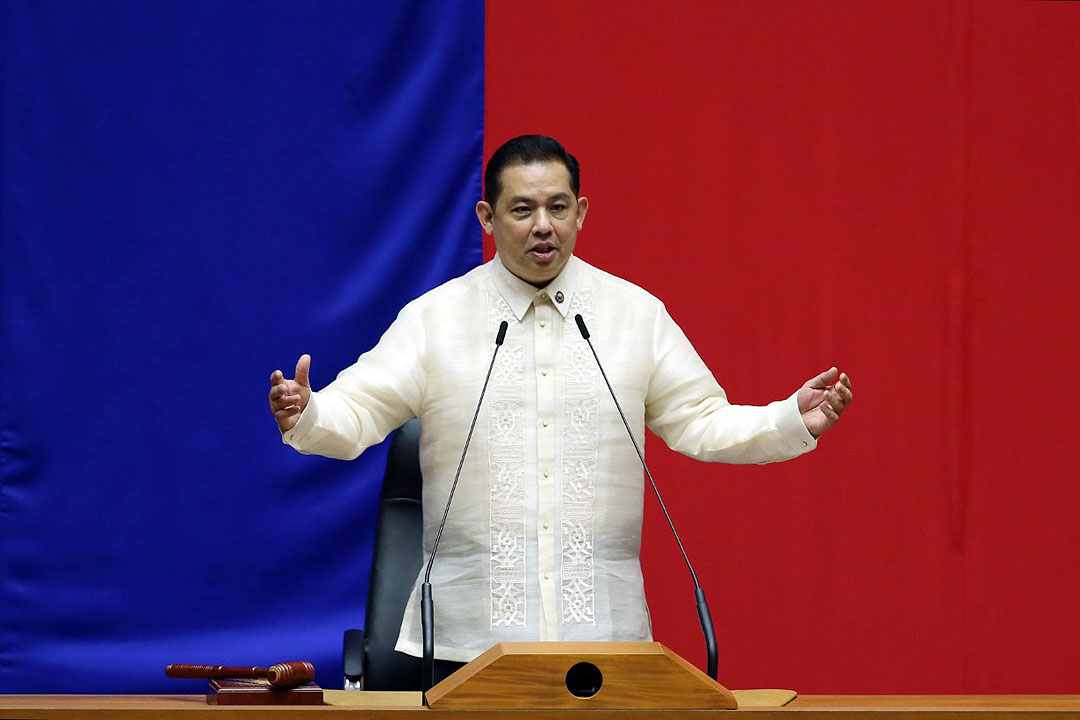Speaker warns vs conditions for peace; DoJ backs amnesty

HOUSE Speaker Martin G. Romualdez welcomed on Wednesday the agreement to restart peace talks between the Philippine government and Maoist rebels with the hope that no conditions would derail renewed efforts to end the world’s longest-running communist insurgency.
“Both sides should not lose hope regardless of the obstacles they will face in the negotiations,” Mr. Romualdez said in a statement, citing growing optimism on both sides.
A cousin of President Ferdinand R. Marcos, Jr., the Speaker called the development an “important and brave” step towards a lasting peace and hoped that “there won’t be any condition that could hinder the peace talks.”
He also called on Filipinos to rally behind these efforts. “The journey to peace is long and complicated but each step is a step closer to a future where every Filipino can live with dignity and prosperity,” he said.
For its part, the Department of Justice (DoJ) assured support for the President’s recent proclamations and executive order that grant amnesty to revolutionary groups, among them Left-leaning organizations.
“We affirm our commitment to the rule of law and understand the necessity of these measures in fostering peace and national reconciliation,” the DoJ said in a statement.
The President’s Proclamation Nos. 403, 404, 405, and 406, signed on Nov. 22, granted amnesty to members of the Rebolusyonaryong Partido ng Manggagawa ng Pilipinas-Revolutionary Proletarian Army-Alex Boncayao Brigade (RPMP-RPA-ABB), former members of the Communist Party of the Philippines-New People’s Army-National Democratic Front (CPP-NPA-NDF), and the Moro Islamic Liberation Front (MILF), and Moro National Liberation Front (MNLF), respectively.
The move is aimed at fostering a climate conducive to peace and reconciliation, facilitate their reintegration into society, and afford them access to the government’s socio-economic services.
The department also expressed support for Executive Order (EO) No. 47, also signed on Nov. 22, which updated the function of the National Amnesty Commission (NAC) to cover the processing of the applications for amnesty under the new proclamations. The justice department said it is prepared to work closely with the NAC.
The Philippine government and the National Democratic Front (NDF) cited “serious socioeconomic and environment issues” as well as “foreign security threats” for agreeing to “a principled and peaceful resolution” of their armed conflict.
The NDFP is a coalition of Maoist revolutionary groups that represents the Communist Party of the Philippines and its armed wing New People’s Army in the negotiations with the government.
Human rights group Karapatan said efforts to resume formal peace talks between the two camps should be geared towards addressing issues that led to the “current dismal human rights situation in the Philippines.”
The government should pave the way for the release of all political prisoners, including detained NDFP consultants and staff, and address the weaponization of law that suppressed political dissent, it said in a statement.
Karapatan said it’s necessary for the government to abolish the National Task Force to End Local Communist Armed Conflict, which was formed by Mr. Marcos’ predecessor through a 2019 presidential order.
The government should overcome the “malicious actions of peace spoilers,” Bagong Alyansang Makabayan said in a statement. “This necessarily entails the reversal of presidential proclamations and orders that make it impossible to restart the peace process,” it added.
“The resumption of peace talks between the GRP (Government of the Republic of the Philippines) and the NDF deserves the full support of all sectors of our society,” Temario C. Rivera, chair of the Center for People Empowerment in Governance (CenPEG), said via Messenger chat.
“We hope that both camps will show the strategic sensitivity and principled flexibility necessary to push the talks to a mutually acceptable settlement for a just and lasting peace.”
Peace negotiator Miriam Coronel-Ferrer, who was among those behind the landmark peace pact between the government and Moro rebels from southern Philippines, said it is noteworthy that the joint statement mentioned a “transformation” of the NPA.
“That’s very important because now it does look like they are already imagining a possible transformation,” Ms. Coronel-Ferrer told ABS-CBN News Channel. “Of course, it doesn’t mean that they have that framework in mind before, but to put it in that statement to agree on a process of transformation…transformation into what, right?” — Kyle Aristophere T. Atienza and Jomel R. Paguian



